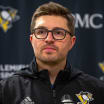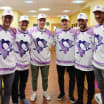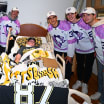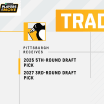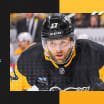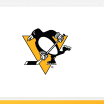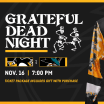It's been said that no other athlete in all of professional sports has had more of an impact on a city than Mario Lemieux has had on Pittsburgh with his accomplishments both on and off the ice. And Lemieux's latest initiative is a perfect example of why.
The Mario Lemieux Foundation announced today that Lemieux will personally match all holiday donations - dollar for dollar, up to $500,000 - until Dec. 31. And what makes an already incredible initiative even more special is that it was Lemieux's own idea.
Lemieux Steps Up With "Mario Match"
We took a look at 66's remarkable initiative and how much the MLF has grown since being founded in '93
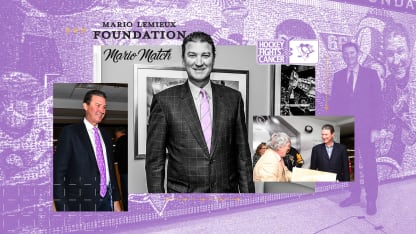
Lemieux approached Nancy Angus, executive director of the Mario Lemieux Foundation, and told her what he wanted to do.
"I was like, that is a FANTASTIC idea!" Angus said with a laugh. "Mario obviously believes in the Foundation; he thinks it's so important. But he's also trying to get the message out there that hey, look guys, I'm going to give so you can give."
"It's the first time in MLF history that we've ever done a match like this before."
That means if someone gives the Mario Lemieux Foundation $100, Lemieux will add $100 to make the total $200, which will go towards one of their many initiatives - namely cancer research at one of the many centers with the Lemieux name on them, as well as Austin's Playrooms.
"I established the Lemieux Foundation to provide hope to those who need extra strength in their darkest moments," Lemieux said in a statement. "In the days of COVID-19, Nathalie and I recognize the responsibility to do our part, which is why we will match donations to the Lemieux Foundation during this holiday season."
This year, our holiday donation goals will be assisted by MARIO LEMIEUX! All of your holiday contributions to the Lemieux Foundation will be personally matched, dollar for dollar, by Mario & Nathalie Lemieux! Make your #MarioMatch donation by 12/31 here: https://t.co/LgDr00YoEl pic.twitter.com/AWdbMRWEAg
— Mario Lemieux (@MarioLemieuxFdn) November 24, 2020
And while Angus was thrilled to hear what Lemieux wanted to do, she wasn't surprised. Because in the 20-plus years that she has known him, Lemieux - the founder and Chairman of the MLF - has been as consistent as it gets when it comes to philanthropy.
"With him, I can't think of a kinder or more generous person - especially someone with his stature," Angus said. "We're so fortunate that he and Nathalie both understand that philanthropy is really important, they recognize it, and they're able to give back. They don't have to. No handbook is written that says that has to happen.
"But Mario decided to do it. He wanted to do it. And he continues to want to do it. He's very active. He participates. He comes to all of our board meetings. And again, the Mario Match was his idea."
Click here to donate and be part of the Mario Match!
\\*
Lemieux founded the Mario Lemieux Foundation back in 1993 after his own personal battle with cancer.
In the 1992-93 campaign - with the Penguins looking to win a third straight Stanley Cup -Lemieux was enjoying the most prolific season of his career to date (which is saying something for a player of his stature) and was on pace to set an NHL scoring record.
But that all came to a screeching halt when the Penguins announced on Jan. 12, 1993 that Lemieux, then just 27 years old, had been diagnosed with Hodgkin's disease (now known as Hodgkin's lymphoma, it's a type of blood cancer). The cancer was discovered after an enlarged lymph node was removed from Lemieux's neck.
"It was a shock, for sure, to be told that you have cancer," Lemieux said. "It's a scary word. But the more I learned about the disease, the more I talked it through with our doctors and people who went through it in the past, I felt more comfortable about the outcome. It was just a matter of going through the radiation for six weeks, and I couldn't wait to get back on the ice."
After Lemieux took a leave of absence to receive treatment, Buffalo Sabres forward Pat LaFontaine took the lead in the NHL scoring race. And each night, Lemieux would turn on ESPN in his hospital room to watch how LaFontaine perfomed.
"I think I had a 20-point lead when I left, and when I came back, I think I was a dozen points behind," Lemieux said. "But I would stay up at night and see what he did. I would turn the TV off and that's all I thought about until my final treatment."
When Lemieux received that final treatment on March 2, 1997, he immediately flew to Philadelphia to play the Flyers in the usually hostile Spectrum. But that night, the fans understood that Lemieux's health was bigger than hockey and rivalries - and gave him a standing ovation.
Lemieux recorded a goal and an assist in Pittsburgh's 5-4 loss, the start of his torrid scoring spree that allowed him recapture his lead and win the Art Ross Trophy.
While Lemieux's story had a happy ending, he knew that not everyone is as fortunate. Which is why he started the Foundation in his name that same year.
\\*
While the right intention was there from the start, it took a few years for the Mario Lemieux Foundation to get going.
Angus came on board in 1998 as a consultant for their first big event, which was a celebrity golf tournament. "Back in the late 90s, that was a big thing to do," she recalled with a laugh.
That turned out to be the catalyst that the MLF needed, because with the proceeds from that, it was able to start focusing in on their cancer initiatives.
"We gave some smaller gifts, we gave a million-dollar gift, and then it all kind of steamrolled into what we are today," Angus said.
The cumulation of it all was the Mario Lemieux Center for Blood Cancers.
Located on the fourth floor of the UPMC Hillman Cancer Center, the Mario Lemieux Center for Blood Cancers was established in 2012 to provide a patient-focused center with comprehensive care for all types of blood cancers and disorders including leukemia, lymphoma and multiple myeloma.
"That's a place where Mario would have gone had it existed 27 years ago," Angus said.
And when it first opened, Angus said the center was somewhat of an 'aha!' moment for the MLF.
"We really came from humble beginnings," she said. "We always knew we wanted to focus on cancer, obviously because of Mario's own experiences. But when we opened that Center for Blood Cancers, it really all came together. Like okay, this is where we want to go. It was just unbelievable to see it come to fruition."
Their first big goal was to get that up and running, and Angus couldn't be prouder of how much it's grown.
"It's such a nice facility, and the people that they serve, the patients that they serve are really the winners in all of it," she said.
One of those patients is Jason Mounts, an attorney and Pennsylvania Army National Guard captain from Washington, Pa., who was diagnosed with leukemia at this time last year.
Mounts grew up playing soccer and basketball, and eventually became an avid runner. Last fall, he went out for a light and easy jog, "and it just crushed me," Mounts said.
For the next few weeks, Mounts struggled through his workouts and eventually developed a rash on his leg. After going to the emergency room and getting blood work done, they suspected it was leukemia and made arrangements for him to start treatments at UPMC Shadyside Hospital.
Mounts received several rounds of chemotherapy before getting a stem cell transplant in May from his sister Erin, who was a match. Mounts is back home doing well and receives all of his follow-up treatment and consultation at the Mario Lemieux Center for Blood Cancers.
"It's been great," Mounts said of his experiences there. "It's exceptionally well run, efficient and attentive to patient needs, like every other aspect of UPMC and Hillman. I'm grateful for whatever donations and fundraising efforts that allow it to exist. Every time I'm there, I see all the people who benefit from it."
Two years ago, the Mario Lemieux Foundation further pledged their support for UPMC Hillman Cancer Center with a $5 million gift for groundbreaking on The Mario Lemieux Immunotherapy Center - which will be on the second floor once construction resumes post-COVID.
"The cool thing about the immunotherapy is that we've moved on from blood cancer so we can also treat people with solid tumor cancers," Angus said.
MLF Donates to the UPMC Hillman Cancer Center
\\\
The third center with No. 66's name on it - completing the hat trick - is the Mario Lemieux Lymphoma Center.
Located in UPMC Children's Hospital of Pittsburgh, it's a center for rare and hard-to-treat lymphomas that benefits kids and young adults from around the world, focusing on clinical care as well as laboratory and clinical research surrounding difficult-to-treat childhood lymphomas.
For the majority of pediatric patients that get lymphoma (around 80-85 percent), standardized treatment protocols are used effectively - to the point where a lot of children forget they even had the cancer later on in life.
"In fact, part of our gift is the Survivorship Program," Angus said. "They developed an app to give to these kids so they can take it to their pediatrician, their big kid doctor and then to their regular doctor so their records would all transfer over."
And while that program has been a tremendous asset, the biggest reason the Mario Lemieux Foundation established the center is for the 15-20 percent of pediatric patients who have those rare and hard-to-treat lymphomas.
"We wanted to treat that percentage of the kids who are sent home with no treatment," Angus said. "If you get rare and hard-to-treat lymphoma, before you were just at home. That's it. There was nothing they can do."
But now, not only do pediatric patients receive clinical care - expert researchers take what they've seen, go into the laboratory and coordinate clinical trials of cutting-edge treatments. In fact, what they've done with the MLF's gift is turned it into a National Institute of Health Study because they created a tumor suppressor.
"So when they find that you have lymphoma, they can stop it," Angus said. "It's going through the phased trials. It's got NIH support. And when it goes all the way through in a couple more years, it will change the way lymphoma patients are treated everywhere. And the neat part for us is that we could play a part in that."
\\\
While the Mario Lemieux Center for Blood Cancers, Mario Lemieux Lymphoma Center and Mario Lemieux Immunotherapy Center are essentially the flagship programs, the MLF has so many more initiatives that are important to them.
One of those is Austin's Playrooms, which came about after Mario and Nathalie's experience when their son Austin spent 71 days in the Neonatal Intensive Care Unit as an infant. While the Lemieuxs were focused on Austin, they realized there was nothing within the hospital to occupy and engage their other children - and with that, the vision for Austin's Playrooms came together.
There are now currently 38 Austin's Playrooms throughout the region, with four more in the works. There is even an Austin's Military Playroom in the Walter Reed National Military Center in Bethesda, Md.
That family-oriented approach and understanding that it isn't just the patient who is going through the situation - that their loved ones are going through it as well - informs much of the MLF's overall approach.
"It's a family affair," Angus said. "Everyone can get behind it, because they all know it, because they all lived it. Cancer doesn't just affect the person. When Mario had it, it affected Nathalie and the kids too. When you get cancer, you don't just get to get treatment and go home. It's your whole unit. I think that's something that has impacted the way the Foundation does things."
\\*
To date, the Mario Lemieux Foundation has committed over $30 million to cancer research and patient care initiatives in the Pittsburgh region and beyond. But they couldn't have done it without help.
The MLF has raised money through multiple fundraisers and events - including their signature event, the Pittsburgh Penguins 6.6K Run & Family Walk - and through people who simply have the same sort of generous mindset that Lemieux does.
"We've been so fortunate to have so many generous donors that believed in us," Angus said. "That we could take their funding and turn it around and turn it into these Mario Lemieux Centers to help other people - we can't do it without their support, which is why this Mario Match is such an incredible thing."
In addition, November is Hockey Fights Cancer Month across the NHL - and all funds raised by the Penguins for Hockey Fights Cancer during the 2020-21 season will benefit the Mario Lemieux Foundation and the UPMC Hillman Cancer Center. Angus couldn't be more grateful for the support from both the league and the Penguins.
"It's great that the league recognize that Hockey Fights Cancer is an important thing to do," Angus said. "For sure that recognition, coupled with the power of social media, can get the word out and reach more people for an awareness campaign ahead of anything else.
"It's certainly important and we're really grateful to the league for supporting, but also to the Penguins for always supporting us. The Penguins organization has just been an incredible partner, and we couldn't do without their generosity."
And Mario's.
November is Hockey Fights Cancer Month across the NHL. So each week this month, the Penguins shared a story that inspires hope and courage for those who have been affected by cancer to show our support as an organization. We are proud to help create awareness and raise funds to fight cancer.
For more information on the Hockey Fights Cancer initiative,
click here
.
For more information about the Mario Match or the Mario Lemieux Foundation, please visit
www.mariolemieux.org
.


